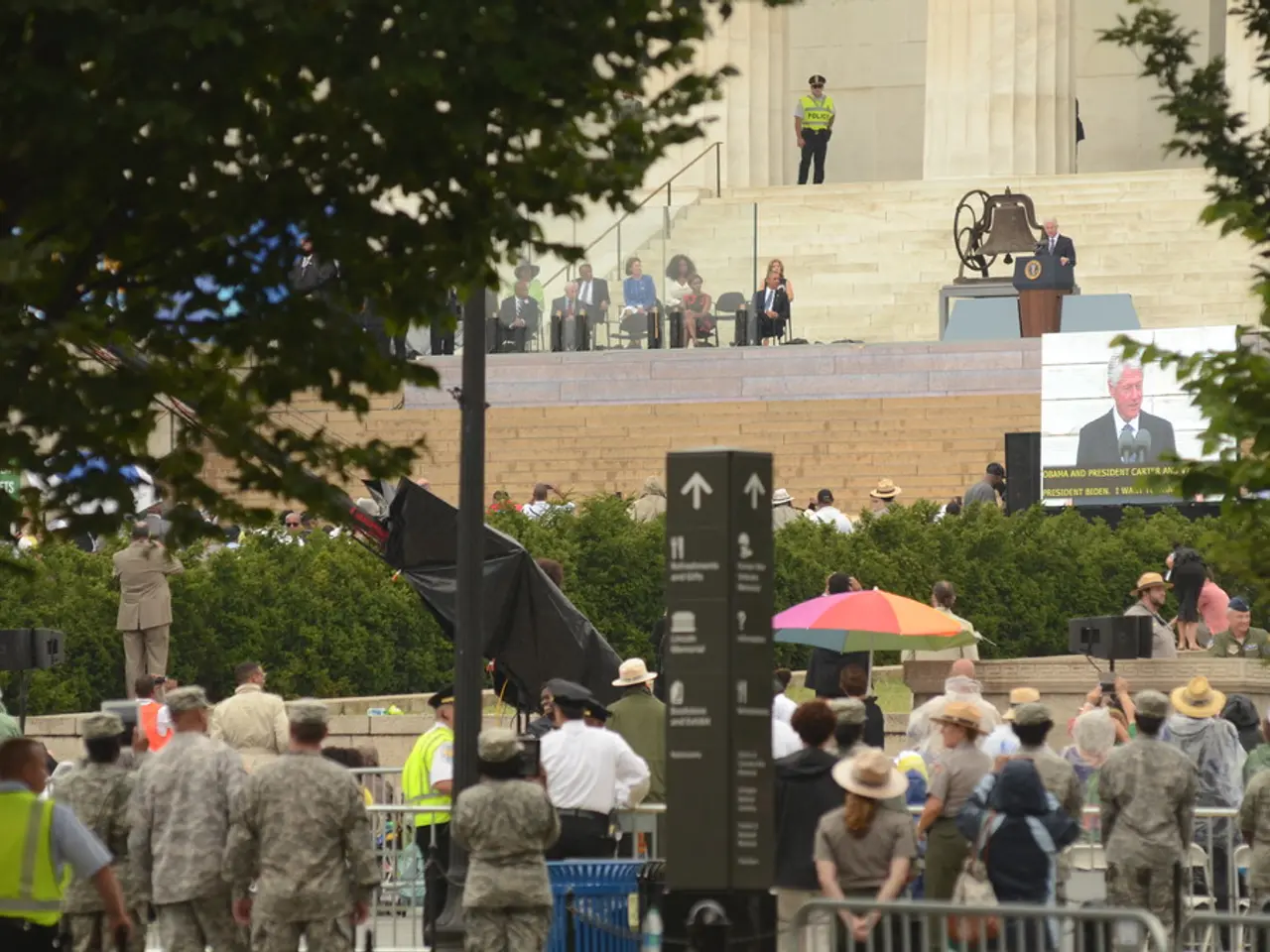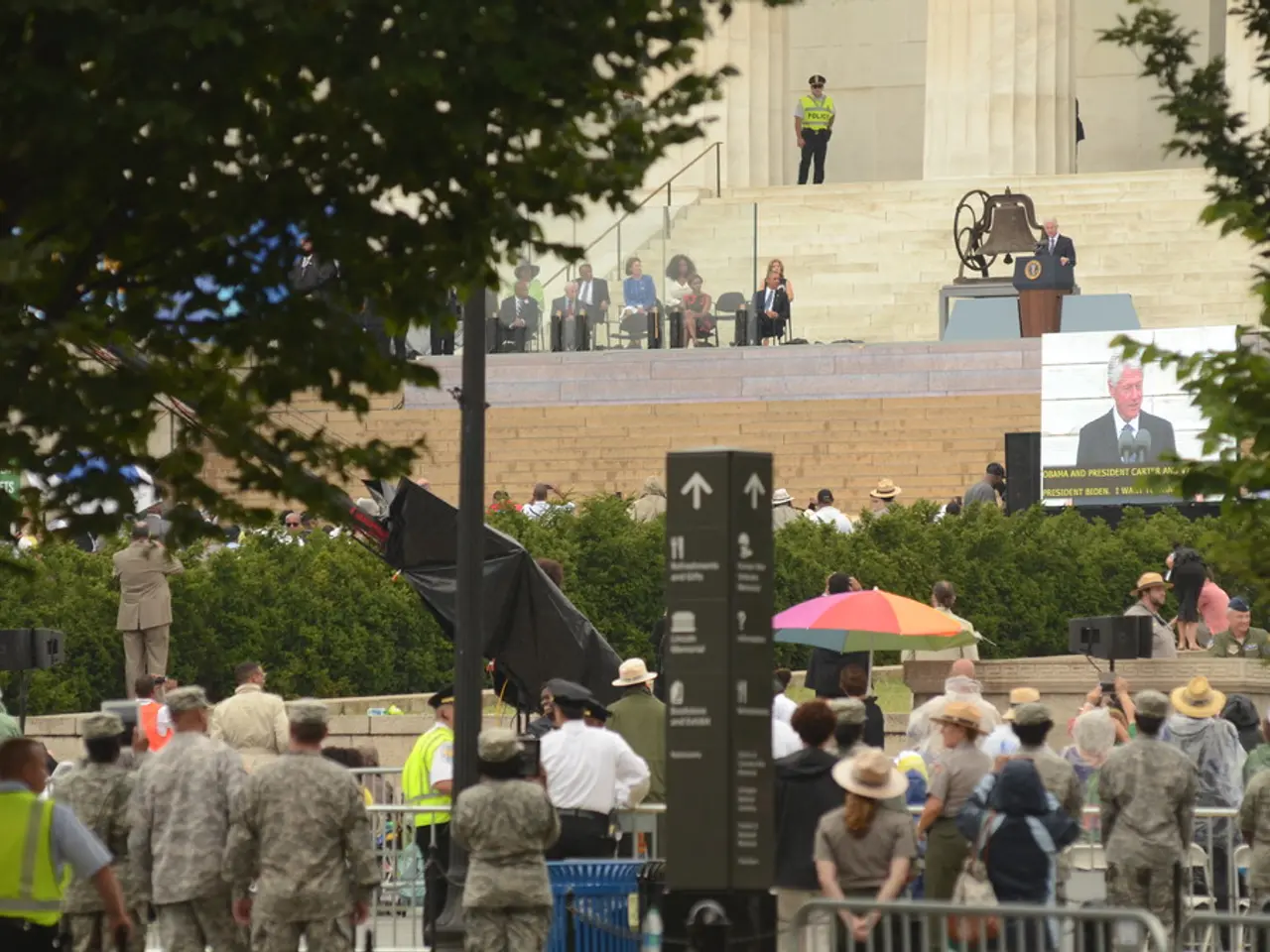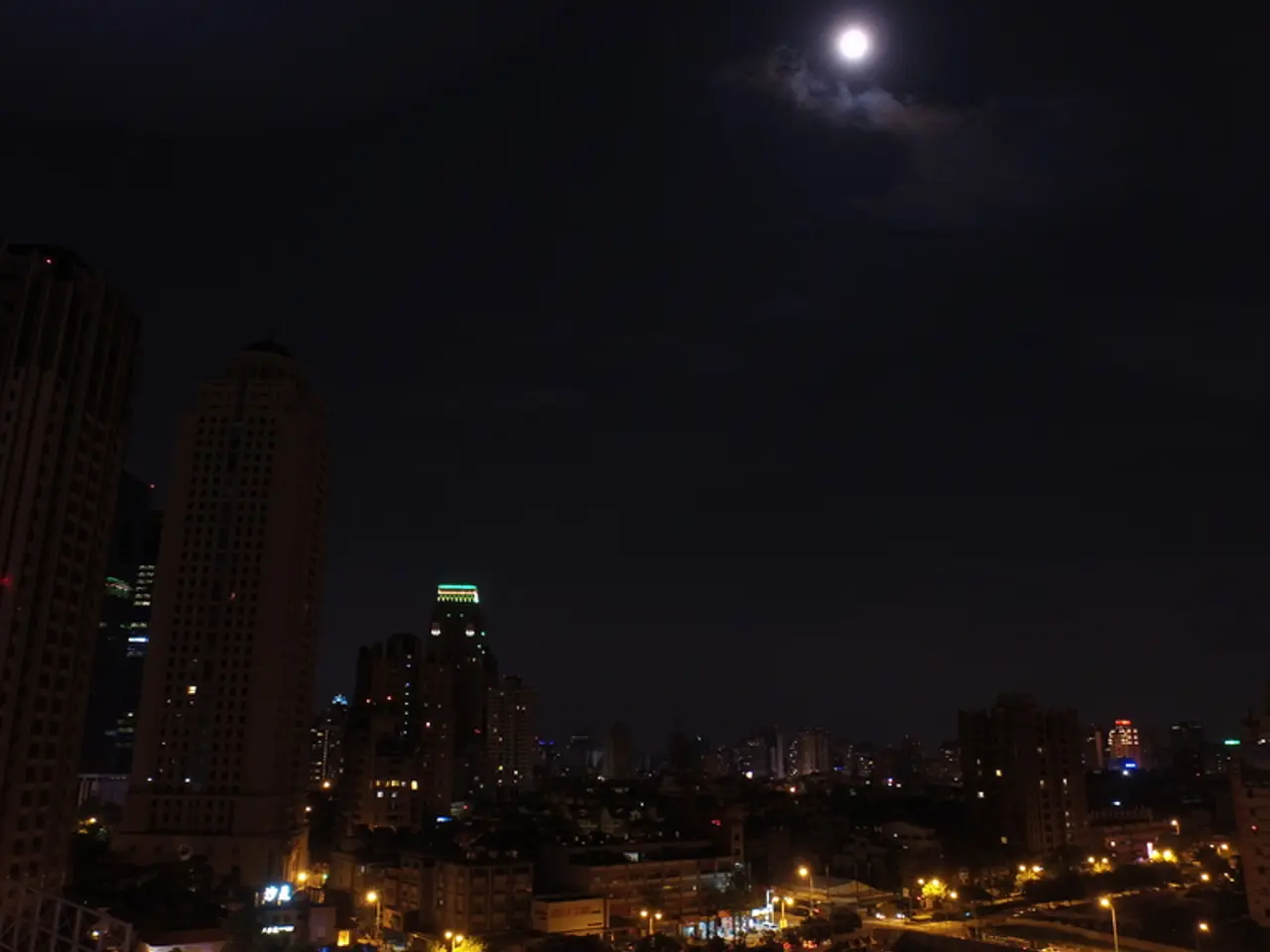IAEA personnel depart from Iran
In the ongoing standoff between the United States and Iran, nuclear negotiations remain in a state of heightened tension and stalemate as of July 2025. This comes after recent U.S. military strikes on Iran’s nuclear facilities, which Iran claims to have anticipated by moving its uranium stockpiles [1][2].
Iran has publicly stated it will not relinquish its uranium enrichment program, a core sticking point in previous rounds of talks. Iran maintains that it has the sovereign right to enrich uranium on its soil, and senior Iranian officials have reiterated this position since the cessation of hostilities after a nearly two-week war with Israel [2].
**Current Status of Negotiations**
There are reports that nuclear negotiations may resume in the near future. However, Iran is expected to reject any U.S. proposal that demands a halt to uranium enrichment on Iranian territory [2]. The latest cycle of violence, including U.S. and Israeli strikes, has further eroded trust and made any diplomatic breakthrough less likely. Iran perceives itself as deceived, citing U.S. attacks following negotiation promises as evidence of bad faith [4].
**Role of the International Atomic Energy Agency (IAEA)**
Iran has halted cooperation with the IAEA, passing legislation that bars IAEA inspectors from accessing its nuclear facilities. This suspension is conditional on the IAEA recognizing Iran’s right to enrich uranium—an official precondition set by Iran for renewed inspections [2]. The U.S. strikes have reportedly driven Iran’s nuclear program further underground, raising concerns about the transparency and monitoring of its nuclear activities [1].
Iran insists that the IAEA must acknowledge its right to enrich uranium before cooperation can resume, reflecting Tehran’s firm stance that any return to international oversight is contingent on accepting its nuclear rights [2]. The IAEA, therefore, is currently excluded from inspecting or monitoring Iran’s nuclear activities, further complicating efforts to resolve the nuclear deadlock [1][2][4].
Preparations are underway for a meeting between Iran's Foreign Minister Abbas Araghchi and U.S. Special Envoy Steve Biegun next week in Oslo. However, it remains unclear whether the Gulf state of Oman will act as a mediator in the potential negotiations [3]. The exact date of the meeting is not yet known.
References: [1] ntv.de [2] dpa [3] Amwaj (online portal) [4] The hardline daily "Keyhan" called for the "arrest and execution" of IAEA Chief Grossi, causing outrage in the West.
- The ongoing nuclear standoff between the United States and Iran has led to a complex web of international politics, with community policy and energy policy playing crucial roles as both nations attempt to navigate their mutual disagreements over uranium enrichment and the sovereign right to enrich uranium on their respective territories.
- The suspension of cooperation between Iran and the International Atomic Energy Agency (IAEA) has been triggered by Iran's demand for recognition of its right to enrich uranium, a move that has been influenced by broader factors such as war-and-conflicts, politics, and general-news events, further complicating efforts to resolve the ongoing nuclear deadlock.







